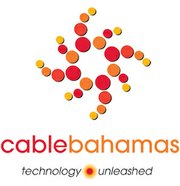By NEIL HARTNELL
Tribune Business Editor
nhartnell@tribunemedia.net
Cable Bahamas has withdrawn its application to US regulators for ‘fast track’ approval of its latest $24 million Florida acquisition, with the BISX-listed company’s “greater financial strength” expected to improve services yet again.
Documents filed with the Federal Communications Commission (FCC) show that on November 14, 2012, Cable Bahamas and its wholly-owned US acquisition vehicle, Summit Vista, withdrew their application for ‘special temporary authority’ to consummate the purchase of US Metropolitan Telecom.
The application for ‘fast track’ approval had initially been made five days earlier on November 9, and Tribune Business understands that Cable Bahamas withdrew it on the grounds that there is a more set, rigid regulatory process for the US Metropolitan Telecom deal to undergo.
Unlike its other $65 million Florida purchases, Summit Broadband and Marco Island Cable/NuVu, which are communications operators, Us Metropolitan Telecom comes under greater scrutiny because, as the owner of a fibre-optic ring, it is an infrastructure owner.
Cable Bahamas and its subsidiaries had to withstand the same process and heightened scrutiny several years ago, when it bought out controlling shareholder Columbus Communications. Now, as then, the US Justice Department, FBI and Department of Homeland Security are all reviewing the US Metrpolitan Telecom deal, on the grounds that as a communications infrastructure owner the purchase has ‘national security’ and ‘public safety’ implications.
While this will not unduly trouble Cable Bahamas or its purchase, the lengthier approval process meant that ‘fast track’ permission was not on the table, so it promptly withdrew it.
Cable Bahamas, via Summit Vista, is purchasing 100 per cent of US Metrpolitan Telecom from its current owner, FiberCon Holdings. In its November 9 application to the FCC, the BISX-listed company said it would have “a market share in the interstate, interexchange market of substantially less than 10 per cent”.
Cable Bahamas also pledged that US Metropolitan Telecom would “continue to provide competitive telecommunications services exclusively in geographic areas served by a dominant local exchange carrier that is not a party to the transaction”.
Of the deal’s benefit to US Metropolitan Telecom and its customers, the FCC application said: “Under new ownership, US Metro will continue to provide high-quality telecommunications services to commercial customers, while being able to expand its customer base and provide new and better services as a result of the greater financial strength of Cable Bahamas and its subsidiaries.
“The transfer of control, therefore, will give US Metro the ability to become a stronger competitor, to the ultimate benefit of consumers.”
The FCC application added that Cable Bahamas’ purchase would result in no changes to rates or service terms, and it would be “seamless and transparent to customers”.
US Metrpolitan Telecom is a Caribbean Crossings “mirror image”. The deal to buy the provider of a fibre optic ring that connects northern and central Florida is both an attempt to give the BISX-listed communications provider instant critical mas,s and build a business model similar to the one it has developed in the Bahamas.
While the previously announced acquisitions of Marco Island Cable/NU Vu and Summit Broadband give Cable Bahamas providers of cable TV, broadband Internet and phone services, US Metropolitan Telecom will provide it with the necessary telecommunications infrastructure in Florida - the same role as its wholly-owned Caribbean Crossings subsidiary performs in the Bahamas.
Anthony Butler, Cable Bahamas president and chief executive, told Tribune Business last week: “It’s a fantastic opportunity. They are the mirror image of Caribbean Crossings. It’s the same model we’re building off in the Bahamas.
“They’re [US Metropolitan Telecom] the providers of the metro fibre ring that they have built out all over Florida. It’s similar to the Bahamas, so they two are going to be connected.”
Mr Butler explained that US Metropolitan Telecom’s fibre optic ring runs from Miami all the way across to the Florida west coast, then tracks north to the Orlando area, and back down to Miami again.
Tribune Business understands that US Metropolitan Telecom already carries communications traffic for Marco Island Cable/NU Vu and Summit Broadband. It will perform the communications infrastructure role that Caribbean Crossings does in the Bahamas, with the other two entities acting as the cable TV, Internet and phone providers.
Mr Butler said US Metropolitan Telecom’s fibre optic ring covers 18 million consumers, and added: “There’s fantastic opportunities for small guys up there [in Florida].”
Other clients whom US Metropolitan Telecom carries traffic for include AT&T and Verizon.





Comments
Use the comment form below to begin a discussion about this content.
Sign in to comment
OpenID